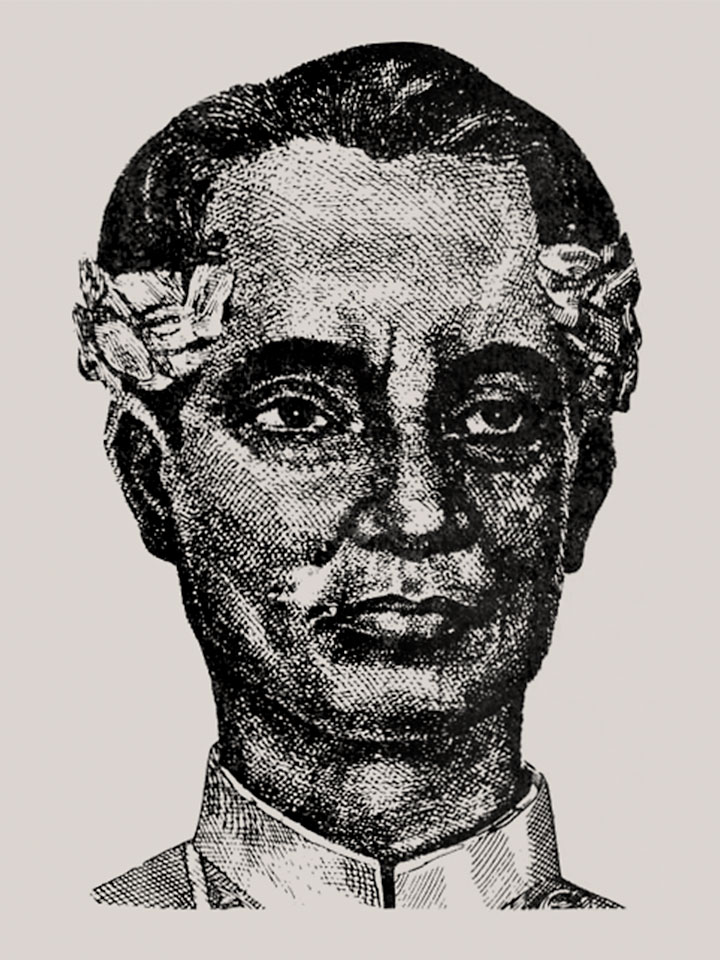Francisco Balagtas
Birth Name: Francisco Balagtas y de la Cruz
Nickname: Kiko Balagtas
Pseudonym: Francisco Baltazar
Born: April 2, 1788 in Bigga, Bulacan, Philippines
Died: February 20, 1862 in Udyong, Bataan, Philippines
Time Period: Romantic
Expertise: Assistant Justice of the Peace, Major Lieutenant, Orator, Playwright, Poet, Translator of the Courts
Known For: Florante at Laura

Quotes
Interesting quotes by Francisco Balagtas
“Sometimes, failure drives a person to strive and achieve success.”
“But, woe to me, unfortunate fate! What is the value of such an encouragement, if my love song in silence is already leaning on another lap?”
“I do not ask you to love, laugh and despise my poor poetry; do as you please and the harp is with you; don’t just change the verse.”
“When the famous warrior triumphed over the fierce beast, tears helped to loosen the shackles of the poor man left behind.”
ADVERTISEMENT
Bio
A brief biography of Francisco Balagtas
On April 2, 1788, Francisco Balagtas (aka Francisco Baltazar) was born in Bigaa, Bulacan, Philippines and wrote poetry during the Spanish colonial period. The well-known Filipino poet, José de la Cruz (Joseng Sisiw), guided and instructed Balagtas on how to write poetry in exchange for chickens. Due to the fire that burned through Udyong, Bataan, all of Francisco Balagtas’ handwritten works were destroyed. He is best known for Florante at Laura, a Greek epic he crafted into rhyme in the Filipino poetic style of awit.
Showing resistance to the Spanish rule, Balagtas constructed poetry in his native language of Tagalog instead of Spanish. In 1835, Francisco moved to Pandacan, Manila, where he connected with María Asunción Rivera. Becoming inspiration for his poetry, Rivera would later be cited as “Selya” and “MAR” in Florante at Laura. However, his muse had another admirer, Mariano Capule, who used his influence to have Balagtas thrown into prison. However, that didn’t stop Francisco from writing. It was then and there in his prison cell that he wrote Florante at Laura—later published in 1838 when he was released.
Moving to Balanga, Bataan, in 1840, Balagtas worked as an assistant to the Justice of the Peace and became a translator of the court. In 1842, Balagtas married his wife, Juana Tiambeng, and they had eleven child together–though only four would survive. After being selected as Major Lieutenant, in 1856, Francisco would be imprisoned again under an allegation that he demanded Alferez Lucas’ chambermaid’s head be shaved. Lucas’ vendetta led him to sell all his assets to secure Balagatas’ imprisonment in 1861.
During his second imprisonment, Francisco Balagtas continued to write poetry and translate Spanish documents. He died one year later on February 20, 1862. On his deathbed, Balagtas had one final request: he wished none of his children would follow in his footsteps and become poets. He believed they had suffered because of his talents and even stated, “it would be better to cut their hands off than let them be writers.” Francisco’s legacy is filled with honor—having streets named after the characters in Florante at Laura and his hometown was renamed from Bigaa to Balagtas—complete with a museum and monument dedicated to the writer.
ADVERTISEMENT
Works by Francisco Balagtas

Download free Francisco Balagtas books. Listen to Francisco Balagtas audiobooks.

ADVERTISEMENT
External Links for Francisco Balagtas
Francisco Balagtas on Wikipedia
https://en.wikipedia.org/wiki/Francisco_BalagtasFrancisco Balagtas on Wikisource
https://es.wikisource.org/wiki/Autor:Francisco_BaltazarADVERTISEMENT
Other Authors

See other authors of the Romantic period

